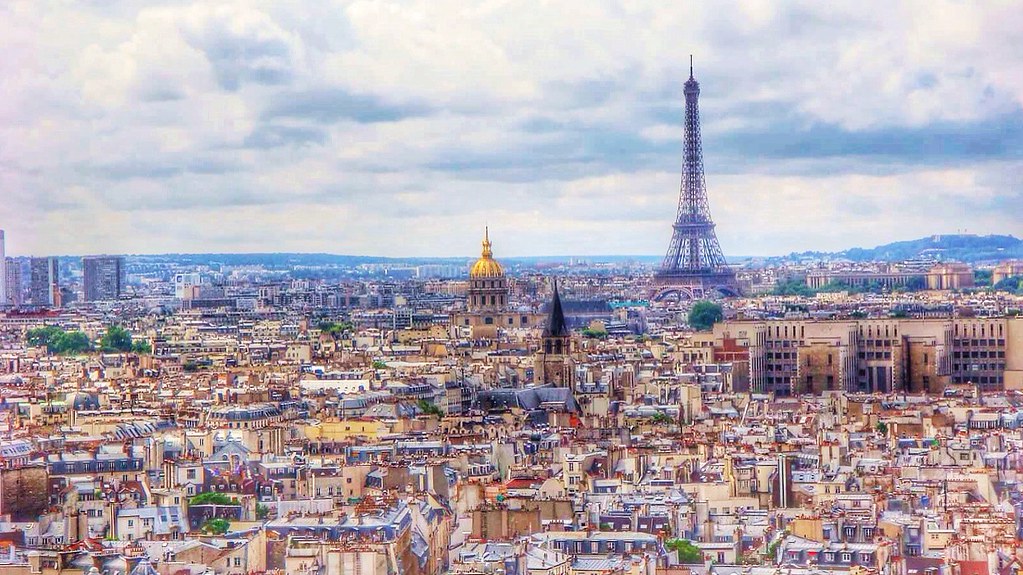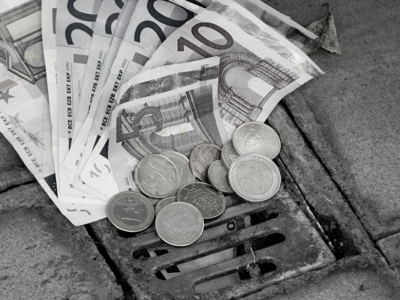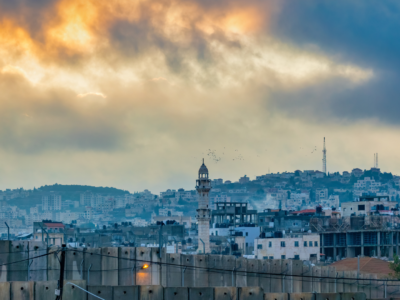France, an enemy of Catalonia?

17/03/2022
Principles of international politics
Over the last few decades in Catalonia, there has existed a broad tendency to think that nation-states define their international policies according to ideologies and values rather than interests. Empiric evidence tells us that states act according to interests, particularly economic and political interests. From this point of view, the geopolitical situation constitutes a fundamental criterion. In this regard, France is no exception.
It is thus necessary to define certain concepts before we get to the crux of the matter. The French Republic is a country that conceives its foreign policy in terms of pragmatic criteria, its economic interests, and a vision of itself as a great power. Ideas such as Jacobinism or “chauvinism” cannot be considered determining elements of its foreign policy.
Some identify this policy as “realpolitik”. It is in reality a strategy based on economic and geopolitical criteria, not values or ideological principles, although these may have some influence. Ideology becomes a secondary concern, a justifying factor. The goal of a state’s foreign policy is to be found in the efficacy of its acts. Decisions are not taken based on principles, ethics, or moral values. The goal is to reinforce one’s national interest, depending on the role that states wish to play at any given time.
In this context of decision making, it should be borne in mind that some are taken on the basis of very specific, short-term criteria, such as bilateral agreements between two states on specific questions, that is to say, they cover each other’s backs.
Catalonia and France
As stated above, first you need to know how to read a map. Geopolitics becomes a determining criterion in the definition of foreign policy. Catalonia lies between two strong states, France and Spain. Catalonia’s history has been defined by its border with its neighbors, while its most important border lies on the Mediterranean. Catalonia has been coveted by Spain and France, to the point that they split it between them in 1659 in the Treaty of the Pyrenees.
It is important to remember the Carolingian origins of our Catalan counts. With the Treaty of Corbeil in 1258, the vassals of the king of France, Saint Louis, renounced their claims to the Catalan territories, while the king of Catalonia and Aragon, James I, renounced his rights over Languedoc.
However, there is a fundamental difference between Spain and France. France has not only been a rich country with a central position in Europe, between the Romance and the Germanic worlds, but it also partook in a bourgeois revolution, unlike Spain. In an alliance between the bourgeois and the working classes, the French people removed the Monarchy and built a modern capitalist country, with a representative democracy and a republican government, influenced by the Declaration of the Rights of Man and of the Citizen of 1789.
Spain’s economic, political and constitutional backwardness, alongside the proximity and the historical ties with France, made the latter a role model for Catalonia to follow. The proximity is to be found in the culture, the literature, and the republican ideals that have been present in Catalonia’s society since the mid-19th C.
France has traditionally been a favored land for the Catalans, especially Paris, but also Occitania. For instance, the early intellectuals of Catalonia’s Renaixença –a 19th century cultural and linguistic renaissance movement– developed intense links with the parallel movement in Languedoc and Provence led by the Felibritge association and Frederic Mistral.
Catalan nationalism has also been deeply influenced by French ideas, both in the concept of the nation and the state. While in Spain the state has had a lesser degree of intervention in social, education, and communication policies, we can see how Catalonia’s limited autonomous institution of the Mancomunitat of the early 20th C. developed cultural policies based on the French model for education, libraries, museums, transports infrastructure, a School for the Administration, deployment of the telephone, etc.
Catalonia’s pro-independence movement has pushed for incorporating Catalonia as part of the International Association of the Francophonie due to its linguistic and historical proximity. Although that has been controversial, especially from Northern Catalonia independence supporters – part of the Department of Eastern Pyrenees, south of France – this also reflects a sociopolitical reality beyond the Spanish sphere of influence.
The process of French nation-state building is also a product of violence. However, France knew how to act with efficacy and intelligence, in proposing a progressive model of government, ambitious and prestigious, with a solid international projection, unlike Spain. So France has been able to assimilate the different peoples within its territory, adhering them to its national project, deftly conflating France with Republic and Frenchman with citizen.
Today, it is inconceivable for France to incorporate new territories within its current borders. Instead, its areas of influence are still part of its interest, especially at a time of loss of international influence, and when the European integration project has stagnated.
The concept of buffer states surrounding France has also been a historical constant. It was resurrected by De Gaulle during the Liberation: Belgium, Sarreland after World War II, and the projects of creating independent republics in Catalonia and the Basque country under French-British protection.
During the Spanish Civil War, French diplomacy was alive to the Catalan secessionist movement. There were frequent contacts and meetings between the Catalan and French authorities. From April to August of 1938, the French government of Leon Blum initiated a project proposing the creation of a Catalan republic – that would include all Catalan-speaking territories of Valencia and Mallorca – before the inevitable victory of Francoist Spain and the coming war with Germany and Italy. That Catalan protectorate would serve to defend the interests of the French navy in the Mediterranean, the ports of Toulon and Marseille in France, and Algiers and Oran in Algeria.
The current situation
Nowadays, at a time when the economy has permeable borders and the spaces for economic development are established with different criteria from those of the traditional states, the common interests and the geographical proximity of Catalonia with France have regained importance. The distance between Barcelona and Madrid is equivalent to that of Barcelona with cities such as Bordeaux, Lyon, or Marseille –the 5th, 3rd, and 2nd cities in France.
Toulouse, the 4th most important city in France, is even closer to Barcelona, with a hinterland composed of much richer, developed, and complementary territories. France is interested in Catalonia based on the potential of closer economic integration with its South because those territories, basically agricultural, have historically been the most depressed and underdeveloped in regard to the industrial north. Catalonia’s industrial potential could play a cohesive role for the region. At the same time, the French regions of Occitanie and Provence-Alpes-Côte d’Azur are the essential links with Lyon and the Auvergne-Rhône-Alpes region, the richest region in France after Paris and Île-de-France. In addition, it is the junction with Germany, northern Italy, and central Europe.
In addition, a significant number of French companies are present in Catalonia (1163), as are many Catalan companies in France (571). France accounts for 25% of Catalan exports, despite France being a mature and demanding market. France, therefore, represents the first trading partner of Catalonia. France is a natural space for the economic development of Catalonia, in which it can participate with greater criteria of loyal competition than with the customary Spanish market distortions, Madrid’s obsessive centralism and intense resource drain through fiscal imbalance that only an independent Catalan republic could remedy.
In economic terms, Catalonia concluded an industrial revolution following the English and French models of the nineteenth century in particular, but also that of Germany. The Catalan economy has always shown an innovative spirit despite the antagonism of the central government. With this perspective in mind, in Catalonia, there is currently an important network of small- and medium-sized companies and startups that are of greater appeal for French interests than the Madrid-centric corporations and multinationals. In addition, Spain is currently blocking joint-development projects that would provide the necessary infrastructure for the economic integration between Catalonia and France.
In terms of foreign policy, France does not trust Spain’s incoherent international policy. The Spanish state continues to follow the foreign policy of the Franco era, which is essentially based on a certain degree of isolationism and limited to discrete exploitation of the situation, instead of adopting a participatory, active policy with a vision for the future. If Franco did not join NATO and the Common Market, it was simply because he was not accepted.
Spain does not have a coherent policy in relation to the Mediterranean when, for example, in the Maghreb (Algeria, Morocco and Western Sahara) it should share a common interest with France. At the same time, it prioritizes relations with countries that generate regional destabilization, such as Turkey, with which it has common interests of territorial unity, finance, and even military cooperation. Growing links in the field of defense have already raised suspicions among countries such as Greece and Cyprus, and have been under the scrutiny of EU institutions for a few weeks now. Spain’s foreign ministry has been active only to constrain the Catalan pro-independence movement’s international action. This explains the marginalization of Spain from international decisions and the history of Paris’s mistrust of Madrid.
Although the current French government seems to fully defend the position of the Spanish state in relation to Catalonia, one should not assume that this is the position of the whole of French public opinion. It is necessary to take into account several deputies and senators, mayors, unions, parties, and various journalists and intellectuals who have expressed their disagreement with the repressive policy of the Spanish state, its refusal to enter into any form of dialogue, and in particular the silence of the French Government and the European institutions on the matter.
This is evidenced by the adoption in 2021 by the federal council of the Europe Ecology – The Greens party of a motion that not only demanded the amnesty of Catalan prisoners and exiles and the end of repression but above all that in the application of the right to self-determination, the constitution of an independent Catalan republic must be recognized if the majority of Catalans so wish. We must not underestimate this context, which is also justified by the French political tradition of defending human rights and democratic and republican principles for many generations. We must not forget the important movement of solidarity with Francesc Macià following the events in Prats de Molló and his trial in Paris with a symbolic sentence of deportation to Belgium.
There is obviously a certain ideological connection between France and Catalonia based on republican principles and human rights, principles that have permeated Catalan society through the years. In this sense, French political culture is closer to that of Catalonia. French pragmatism, or realpolitik, can make it easier for France to change its attitude towards Catalonia than ethical and moral behavior on the day that the French state considers that the constitution of a Catalan republic may interest them more than supporting a declining Spain. There are many who already think so even if they do not say so publicly.
Catalonia must not forget history and the principles that govern international politics before defining a Catalan strategy for the world.
Ignasi Fortuny, lawyer in Paris and Barcelona.
The opinions expressed in this publication are those of the authors. They do not purport to reflect the opinions or views of the CGI or its contributors. The designations employed in this publication and the presentation of material therein do not imply the expression of any opinion whatsoever on the part of the CGI concerning the legal status of any country, area or territory or of its authorities, or concerning the delimitation of its frontiers.


